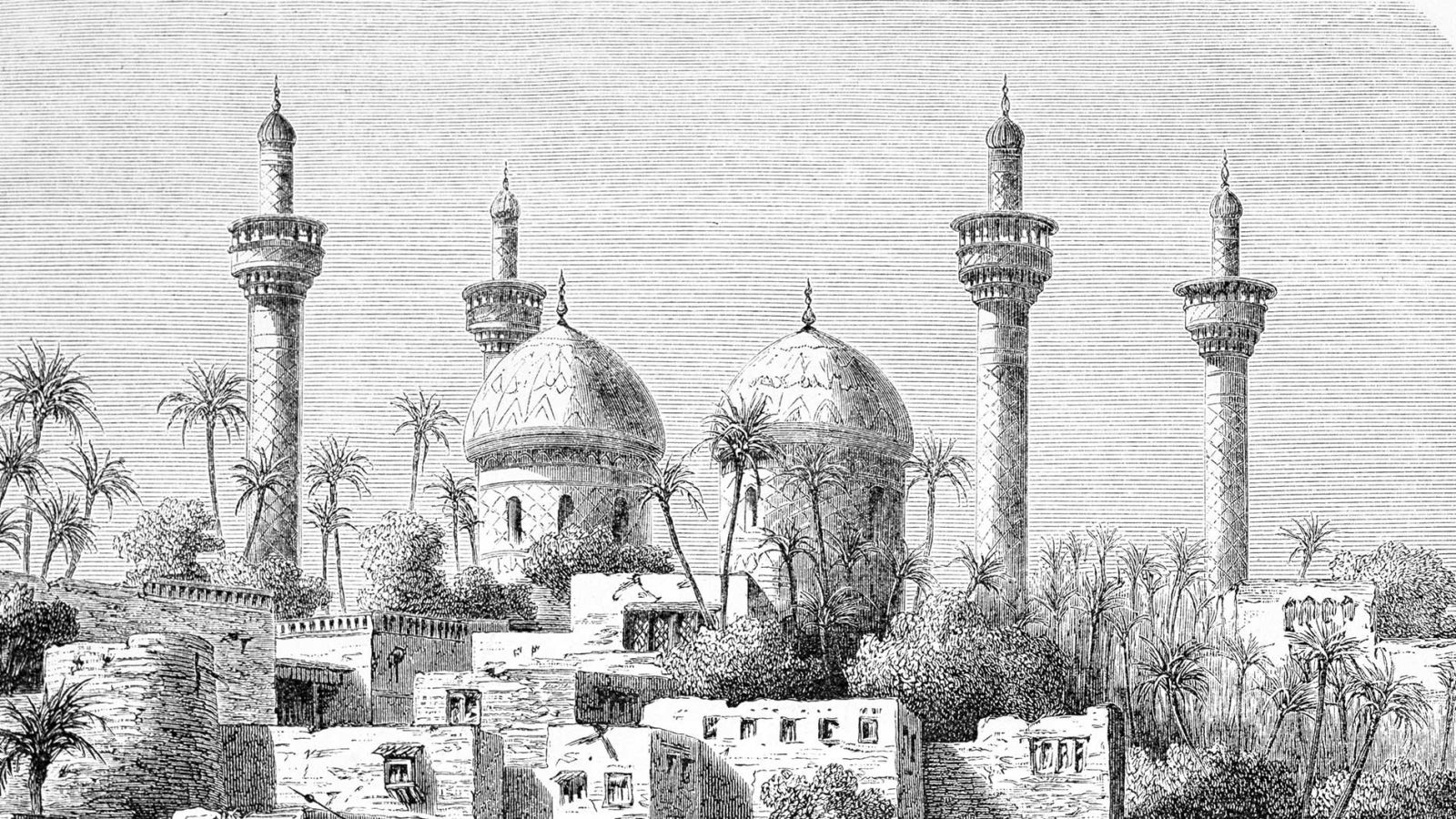Ibn al-Qayyim – A Brief Biography


He is the Imām, the ḥāfiẓ (preserver of ḥadīth), the Scholar of tafsīr (Qur’anic exegesis), uṣūl (fundamentals of jurisprudence and law) and Fiqh (jurisprudence), Abū ʿAbdullāh Shamsud-Dīn Muḥammad Ibn Abī Bakr – better known as Ibn Qayyim al-Jawziyyah (or Ibn al-Qayyim).
And if there were no virtues of Shaykh Taqiyy al-Dīn [Ibn Taymīyyah], except for his famous student Shaykh Shams al-Dīn Ibn al-Qayyim al-Jawziyyah—the author of many works, which both his opponents and supporters benefited from—then this would be a sufficient indication of his [i.e. Ibn Taymiyyah’s] great position.
His Birth and Education
He was born into a noble and knowledgeable family on the seventh of Safar in the year 691H in the village of Zar‘, near Damascus, Syria. From an early age he set about acquiring knowledge of the Islamic sciences from the Scholars of his time. Descriibng his desire for knowledge, al-Ḥāfiẓ Ibn Rajab said in Dhayl Tabaqātul-Hanābilah (4/449): “He had an intense love for knowledge and for books, publications and writings.” Likewise, Ibn Kathīr said in al-Bidāyah wa-al-Nihāyah (14/235): “He acquired from such books what others could not acquire, and he developed a deep understanding of the books of the Salaf (Pious Predecessors) and of the khalaf (those who came after the Salaf).”
His Teachers and Shaykhs
They include Shihāb an-Nāblusī and Qaadee Taqiyy al-Dīn Ibn Sulaymān, from whom he studied ḥadīth; Shaykh Safiyyud-Dīn al-Hindee and Shaykh Ismāʿīl Ibn Muḥammad al-Harraanee, from whom he studied fiqh and uṣūl; and also his father; from whom he learnt faraa‘id (laws of inheritance). However, the most notable of his shaykhs was Shaykh al-lslām Ibn Taymīyyah, whom he accompanied and studied under for sixteen years. Al-Ḥāfiẓ Ibn Kathīr said in al-Bidāyah wa-al-Nihāyah (14/234): “He attained great proficiency in many branches of knowledge; particularly knowledge of tafsīr, ḥadīth, and uṣūl. When Shaykh Taqiyy al-Dīn Ibn Taymīyyah returned from Egypt in the year 712H, he stayed with the Shaykh until he died; learning a great deal of knowledge from him, along with the knowledge that he had already occupied himself in attaining. So he became a single Scholar in many branches of knowledge.”
His Manners and Worship
Many of his students and contemporaries have borne witness to his excellent character and his manners of worship. Al-Ḥāfiẓ Ibn Rajab said about him in Dhayl Tabaqaatul- Hanaabilah (4/450): “He – raḥimahullāh – was constant in worship and performing taḥajjud (the night Prayer), reaching the limits in lengthening his al-Ṣalāh (Prayer) and devotion. He was constantly in a state of dhikr (remembrance of Allāh) and had an intense love for Allāh. He also had a deep love for turning to Allāh in repentance, humbling himself to Him with a deep sense of humility and helplessness. He would throw himself at the doors of Divine obedience and servitude. Indeed, I have not seen the likes of him with regard to such matters.”
Ibn Kathīr – raḥimahullāh – said in al-Bidāyah (14/234): “He was constant in humbly entreating and calling upon his Lord. He recited well and had fine manners. He had a great deal of love and did not harbour any envy or malice towards anyone, nor did he seek to harm or find fault with them. I was one of those who most often kept company with him and was one of the most beloved of people to him. I do not know of anyone in the world at this time, who is a greater worshipper than him. His al-Ṣalāh (Prayer) used to be very lengthy, with prolonged rukūʿ (bowing) and sujūd (prostrations). His colleagues would criticise him for this, yet he never retorted back, nor did he abandon this practice. May Allāh bestow His Mercy upon him.
His Students and Works
Amongst his most prominent students were: Ibn Kathīr (d.774H), al-Dhahabī (d.748H), Ibn Rajab (d.751H), and Ibn ʿAbd al-Hādī (d.744H), as well as two of his sons, Ibrāhīm and Sharafud-Dīn ʿAbdullāh. Imām Ibn al-Qayyim – raḥimahullāh – authored over sixty works. His books and writings are characterized by their touching address to the heart and soul, as well as their accuracy, precision, the strength of argument, and depth of research.
His writings include: I’lāmul-Muwaqqi’īn, Turuqul-Hukmiyyah, Ighāthat al-Lahfān, Tuhfatul-Mawlūd, Aḥkām Ahlul-Dhimmah and al-Faroosiyyah, all in the field of fiqh and uṣūl. In the field of ḥadīth and sīrah (biography) they include: Tahdhīb Sunan Abī Dāwūd, al-Manārul-Munīf and Zād al-Maʿād. In the field of ʿaqīdah (beliefs): Ijtimaa’: al-Juyyūshul-lslāmiyyah, as-Sawā’iqul-Mursalah, Shifā‘ul-ʿAlīl, Hadyal-Arwāh, al-Kāfiyatush-Shāfiyah and Kitāb al-Rūḥ. In the field of akhlāq (morals) and tazkiyah (purification): Madārij al-Sālikīn (a commentary on Manaazilus-Saa‘ireen), ad-Daa‘ wad-Dawaa‘: al-Jawābul-Kaafī, al-Waabilus-Sayyib, al-Fawāʾid, Risālatut-Tabookiyyah, and ’Uddatus-Sābirīn. Other books include: at-Tibyān fī Aqsāmil-Qurʾān, Badā‘i’ul-Fawā‘id, Jʿalá‘ul-Afhām and Miftāh Dārus-Sa’ādah.
Statements of the Scholars About Him
Testaments about his comprehensive knowledge and firm adherence to the way of the Salaf (Pious Predecessors) have been given by a number of Scholars; from them are:
[1]: Al-Ḥāfiẓ Ibn Rajab, who said in Dhayl Tabaqaatul-Hanaabilah (4/448): “He had deep knowledge concerning tafsīr and uṣūlud-dīn (fundamentals of the Religion), reaching the highest degree concerning them both. Similar was the case in the field of ḥadīth, with regards to understanding its meanings, and subtleties and deducing rulings from them. Likewise was the case in the field of fiqh and its uṣūl (principles), as well as the Arabic language. He did a great service to these sciences. He was also knowledgeable about kalām (innovated speech and rhetorics), as well as the subtleties and details that occur in the speech of the people of tasawwuf (Ṣūfīsm).”
[2]: Al-Ḥāfiẓ Ibn Ḥajar, who said about him in al-Durarul-Kaaminah (4/21): “He possessed a courageous spirit as well as vast and comprehensive knowledge. He had deep knowledge concerning the differences of opinions of the Scholars and about the ways of the Salaf.” Ibn Ḥajar – raḥimahullāh – also said, in his commendation to ar-Raddul-Waafir (p. 68): “And if there were no virtues of Shaykh Taqiyy al-Dīn (Ibn Taymīyyah), except for his famous student Shaykh Shamsud-Dīn Ibn al-Qayyim al-Jawziyyah – the author of many works, which both his opponents and supporters benefited from – then this would be a sufficient indication of his (i.e. Ibn Taymīyyah’s) great position.”
[3]: Ibn Nāṣir ad-Dimishqī said about him in ar-Raddul-Wāfir (p. 68): “He possessed knowledge of the (Islamic) sciences, especially knowledge of tafsīr and uṣūl. He also said: Abū Bakr Muḥammad Ibn al-Muhib said, as found in his letter: I said in front of our Shaykh al-Mizzī: Is Ibn al-Qayyim at the same level as Ibn Khuzaymah: So he replied: He is in this time, what Ibn Khuzaymah was in his time.”
[4]: Al-Ṣuyutī said in Baghiyyatul-Wi’aat (1/62): “His books had no equal and he strove and traversed the path of the great Imāms in [the field of] tafsīr, ḥadīth, uṣūl (fundamentals), furoo’ (branches) and the Arabic language.”
[5]: Mullā ʿAlī al-Qārī, who said in al-Mirqaat (8/251): “It will be clear to whoever aspires to read the explanation of Manaazilus-Saa‘ireen, that they [i.e. both Ibn Taymīyyah and Ibn al-Qayyim] are from the kibār (great ones) of Ahl al-Sunnah wal-Jamāʿah, and from the awliyāʾ of this Ummah.”
His Death
Imām Ibn al-Qayyim passed away at the age of sixty, on the 13th night of Rajab, 751H. May Allāh shower His Mercy upon him.

















